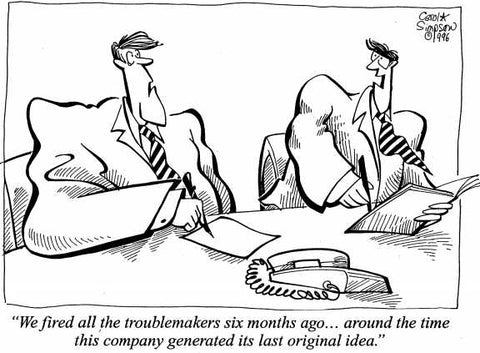History and It's Role in Innovation


Last month I wrote about innovation focusing on customers and customer needs. There is another side of innovation that should be incorporated into a business strategy: history. A long standing successful company has a track record of successes and disappointments in product development. This is valuable information for continuing innovation; valuable information that ‘lean startup’ competitors do not have, and many recently acquired or merged competitors lose track of. There is a success in product innovation offered by long-standing companies when management acknowledges ‘history’ and passes this acknowledgement on to employees.
Innovation is weakened when management is unable to acknowledge the contributing factors to past successes. An important contributing factor to successful innovation is management of a creative staff. Steve Jobs was an astonishing visionary who’s ultimate and incredible successes came after he learned the value of managing ‘innovative’ staff fairly. He learned from past mistakes.
When history enters the equation for innovation, potential successes are increased. A successful long-standing product development company has this history and understands how to use it.“Business leaders ought to study history. You can’t possibly know where you are or where you’re going if you do not know where you have been.” Ken Burns, Life’s Work, Harvard Business Review, August 2015
